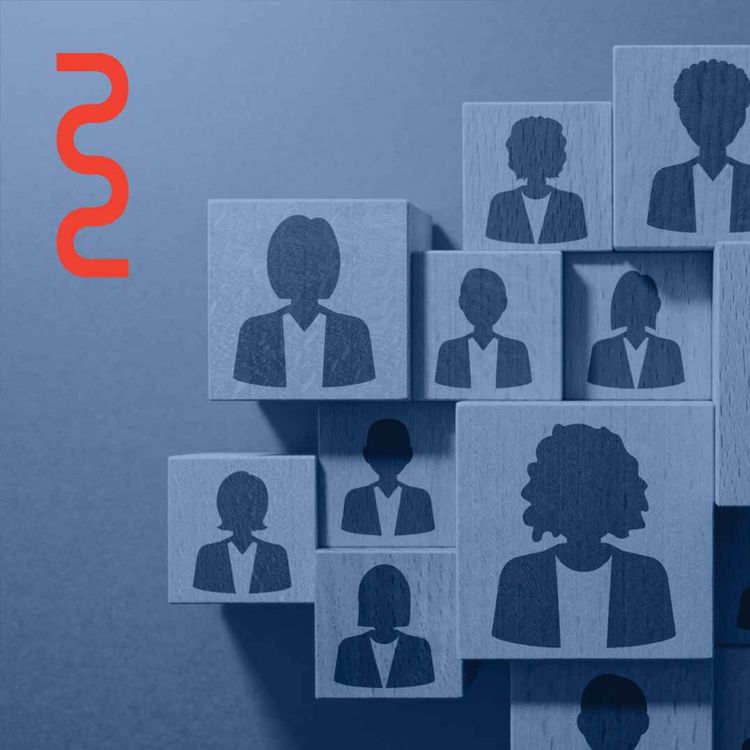Share

McGill Delve Podcast
Managing Bodies in the Workplace
What does a military officer, a performer acting as Santa Claus, and a tech employee in Silicon Valley have in common? They all work in fields where their bodies are intentionally governed by organizational systems intent on shaping them into an idealized image of a worker. Indeed, every single body engaged in work is encouraged to undergo body work in order to be employable in their chosen industries and maintain their roles. However, body work affects different bodies disproportionately. How does organizational body work impact equity, diversity, and inclusion in the workplace? And how can we improve systems of body work in organizations to create better working conditions?
On the Delve podcast, Professor Rohini Jalan from Desautels Faculty of Management explains the concept of organizational body work as “purposeful efforts to shape bodies, embedded in organizations”. She further explains that workplaces and “its managers, its employees, its organizations have systems that exert efforts intentionally to shape bodies in some form or fashion”. In some industries, body work is explicitly expected and performed, such as the military, sports, and sex work industries. However, in other industries, such as academic institutions, STEM fields, and the creative industry, body work is implicitly carried out on a daily basis.
This episode of the Delve podcast is produced by Delve and Robyn Fadden. Original music by Saku Mantere.
Delve is the official thought leadership platform of McGill University’s Desautels Faculty of Management. Subscribe to the Delve podcast on all major podcast platforms, including Apple podcasts and Spotify, and follow Delve on LinkedIn, Facebook, Twitter, Instagram, and YouTube.
More episodes
View all episodes

8. Price Tells a Story About Your Product
25:51||Season 5, Ep. 8In this episode of the McGill Delve podcast, Professor Rim Hariss talks price strategies. Supply and demand, manufacturing costs, and other operational factors are important determinants of a product’s price. But beyond that, retailers can manipulate prices to tell a story about their brand.Professor Hariss explains how price skimming affects relationships with consumers, how price anchoring influences consumer behaviour, and the opportunities and risks of putting your products on sale.Rim Harris is an Assistant Professor of Operations Management at the Desautels Faculty of Management. This episode was inspired by her paper titled “Markdown Pricing with Quality Perception.” Read it here: https://papers.ssrn.com/sol3/papers.cfm?abstract_id=3634129STAY IN TOUCHEmail: delve@mcgill.caYouTube: @McGillDelveInstagram: McGillDelveFacebook: DelveMcGillLinkedIn: McGillDelveMcGill Delve is the official thought leadership platform for the Desautels Faculty at Management of McGill University. Eric Dicaire hosted, edited, and mixed this episode. Saku Mantere composed the original music and is Delve’s Editor-in-Chief.
7. Demystify and Take Control of Your Personal Finances
20:20||Season 5, Ep. 7Personal finance may seem complicated, but it doesn’t have to be. In this episode of the McGill Delve podcast, Professor Benjamin Croitoru walks us through how to control our finances, avoid common investing mistakes, and feel more comfortable speaking to financial advisors. Professor Croitoru is an associate professor of finance at McGill University and the academic director of McGill Personal Finance Essentials, a free course on financial literacy. Learn more here: https://www.mcgillpersonalfinance.com/Looking for more great management thought leadership? Visit delve.mcgill.ca-Get in touch with us!Email: delve@mcgill.caYouTube: @McGillDelveInstagram: McGillDelveFacebook: DelveMcGillLinkedIn: McGillDelve-McGill Delve is the official thought leadership platform for the Desautels Faculty at Management of McGill University. Dr. Sabine Dhir hosted this episode of the Delve podcast. Eric Dicaire edited and mixed the show. Saku Mantere composed the original music.
6. How Simple Management Practices Can Save Lives
21:56||Season 5, Ep. 6Anicet Fangwa is an Assistant Professor in Strategy and Organization at the Desautels Faculty of Management. In this episode of the Delve Podcast, he highlights three simple management tactics that can reduce infant mortality rates in the Democratic Republic of Congo: performance-based incentives, auditing, and feedback. With these management tools, institutional donors can maximize the impact of their funding and potentially save lives.-- LINKSStudy: The Governance of Non-Profits and their Social Impact: Evidence from a Randomized Program in Healthcare in the Democratic Republic of Congo Home: delve.mcgill.caYouTube: @McGillDelveInstagram: McGillDelveFacebook: DelveMcGillLinkedIn: McGillDelve -- McGill Delve is the official thought leadership platform for the Desautels Faculty at Management of McGill University. Dr. Sabine Dhir hosted this episode of the Delve podcast. Eric Dicaire edited and mixed the show. Saku Mantere composed the original music.
23. How Social Goals Can Drive Health Innovation Policy
20:14||Season 4, Ep. 23Paola Perez-Aleman, Associate Professor of Strategy and Organization at McGill University, joins Dr. Sabine Dhir to discuss Brazil’s approach to building healthcare innovation capacity.Brazil has been building innovation capacity and cultivating knowledge networks in its fight against Neglected Tropical Diseases (NTDs), a public health issue that affects millions in Brazil and around the world. Since the 1970s, the country cultivated new knowledge networks, which include domestic and international organizations, with the goal of improving their innovation capabilities in healthcare. These efforts could provide a template for other nations hoping to do the same.--LINKSCreating innovation capabilities for improving global health: Inventing technology for neglected tropical diseases in BrazilHome: delve.mcgill.caYouTube: @McGillDelveInstagram: McGillDelveFacebook: DelveMcGillLinkedIn: McGillDelve--McGill Delve is the official thought leadership platform for the Desautels Faculty at Management of McGill University. Dr. Sabine Dhir hosted this episode of the Delve podcast. Eric Dicaire edited and mixed the show. Saku Mantere composed the original music.
5. For Specialty Medications, Science is the Best Marketing
24:55||Season 5, Ep. 5Demetrios Vakratsas is a Professor of Marketing at the Desautels Faculty of Management at McGill University. In a recent study, he found that physicians use scientific evidence to learn about new specialty drugs, rather than consulting traditional marketing materials.They don’t need brochures. They don’t look at ads. Instead, specialists participate in word-of-mouth marketing to learn about drugs that could help their patients. So what does this mean for marketers in the pharmaceutical sector? And how does this affect the delivery of care for patients with rare diseases?Professor Vakratsas shares his insights on this episode of the McGill Delve podcast.-Visit our homepage and subscribe to our newsletter: delve.mcgill.caRead Professor Vakratras' study: https://journals.sagepub.com/doi/10.1177/00222429231177627YouTube: @McGillDelveInstagram: McGillDelveFacebook: DelveMcGillLinkedIn: McGillDelve-McGill Delve is the official thought leadership platform of McGill University’s Desautels Faculty of Management. This episode of the McGill Delve podcast was hosted and produced by Eric Dicaire, Assistant Editor at Delve. Professor Saku Mantere is Delve’s Editor-in-Chief and produced all the original music.
4. Activist Hedge Funds Want a Seat on Your Board of Directors
22:06||Season 5, Ep. 4Activist hedge funds exert their influence in several ways, but recently they’ve been trying something new: acquiring board seats on their portfolio companies. Once there, fund representatives can advise and monitor company leadership to maximize the company’s value.Ipek Yavuz, Assistant Professor of Finance at the Desautels Faculty of Management, studied the impact of activist board members who perform advisory and monitoring roles in target portfolio companies. She shares her findings on the latest McGill Delve podcast episode.--More from McGill Delve: delve.mcgill.caProfessor Yavuz’s study: https://drive.google.com/file/d/1P5PRykJ_eV60X3iFnPzOmnAx6n6aeD-E/view--McGill Delve is the official thought leadership platform of McGill University’s Desautels Faculty of Management. Subscribe to the McGill Delve podcast on all major podcast platforms, including Apple podcasts and Spotify, and follow Delve on LinkedIn, Facebook, Twitter, Instagram, and YouTube.
3. A Little Financial Data is a Dangerous Thing
21:51||Season 5, Ep. 3Taha Havakhor, Professor of Information Systems at McGill University’s Desautels Faculty of Management, studied how retail investors used data from a financial APIs to inform their investment decisions.What he found was striking. When using stock pricing data pulled from an API, consumer investors were prone to making riskier investment choices.He tells us why in the latest episode of the McGill Delve podcast.-Full study: https://pubsonline.informs.org/doi/full/10.1287/mnsc.2021.01379More from McGill Delve: delve.mcgill.ca-This episode of the McGill Delve Podcast was hosted and edited by Eric Dicaire. Saku Mantere is McGill Delve's editor-in-chief. He also produced all the original music.McGill Delve is the official thought leadership platform of McGill University’s Desautels Faculty of Management. Subscribe to the Delve podcast on all major podcast platforms, including Apple podcasts and Spotify, and follow Delve on LinkedIn, Facebook, Twitter, Instagram, and YouTube.Explore the podcast
2. Sustainable Fast Fashion is a Three-Body Problem
20:09||Season 5, Ep. 2In a recent study, Professor Mehmet Gumus learned that consumers are reluctant to pay more for sustainable clothing. This creates a conundrum for fast fashion companies. Sustainable manufacturing is expensive, so firms want to know their investment will be worth it. But, if they’re going to succeed, major stakeholders will have to join forces to make an impact.Gumus believes companies, consumers, and public institutions can work together to help fast fashion change fast. He joins us on the McGill Delve podcast to talk about how.--Professor Gumus' study: https://papers.ssrn.com/sol3/papers.cfm?abstract_id=4866873Our website: delve.mcgill.ca--This episode of the McGill Delve Podcast was hosted and edited by Eric Dicaire. Saku Mantere is McGill Delve's editor-in-chief. He also produced all the original music in today's episode.McGill Delve is the official thought leadership platform of McGill University’s Desautels Faculty of Management. Subscribe to the Delve podcast on all major podcast platforms, including Apple podcasts and Spotify, and follow Delve on LinkedIn, Facebook, Twitter, Instagram, and YouTube.
1. When Catastrophic Failure Brought the Space Industry Together
18:57||Season 5, Ep. 1In 2014, a commercial spacecraft crashed during a test flight, killing one pilot and severely injuring the other. The ensuing public backlash not only threatened the future of the company, but also the industry as a whole. What followed was a remarkable show of unity among industry leaders, driven by a shared passion for exploration and the need to legitimize a nascent commercial space industry.This incident gives us a glimpse at the behaviours of nascent industries when under existential threat. It also carries important lessons in risk-management and stakeholder relations in high-risk fields.Sen Chai, Professor of Organizational Behaviour at the Desautels Faculty of Management, studied the impact of the crash on the commercial space industry. She joins us on the McGill Delve podcast to talk about it.--Professor Chai's study: https://pubsonline.informs.org/doi/full/10.1287/orsc.2021.1467--This episode of the McGill Delve Podcast was hosted and edited by Eric Dicaire. Saku Mantere is McGill Delve's editor-in-chief. He also produced all the original music in today's episode.McGill Delve is the official thought leadership platform of McGill University’s Desautels Faculty of Management. Subscribe to the Delve podcast on all major podcast platforms, including Apple podcasts and Spotify, and follow Delve on LinkedIn, Facebook, Twitter, Instagram, and YouTube.